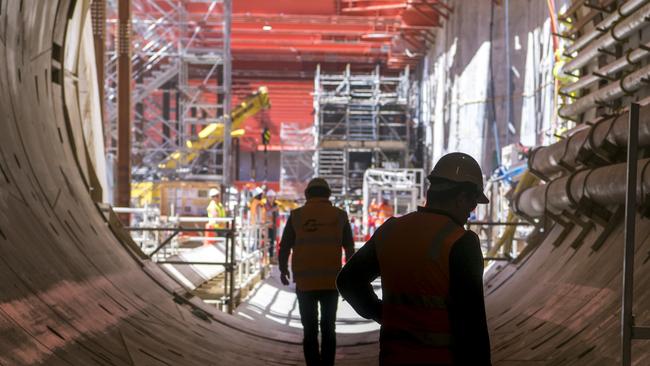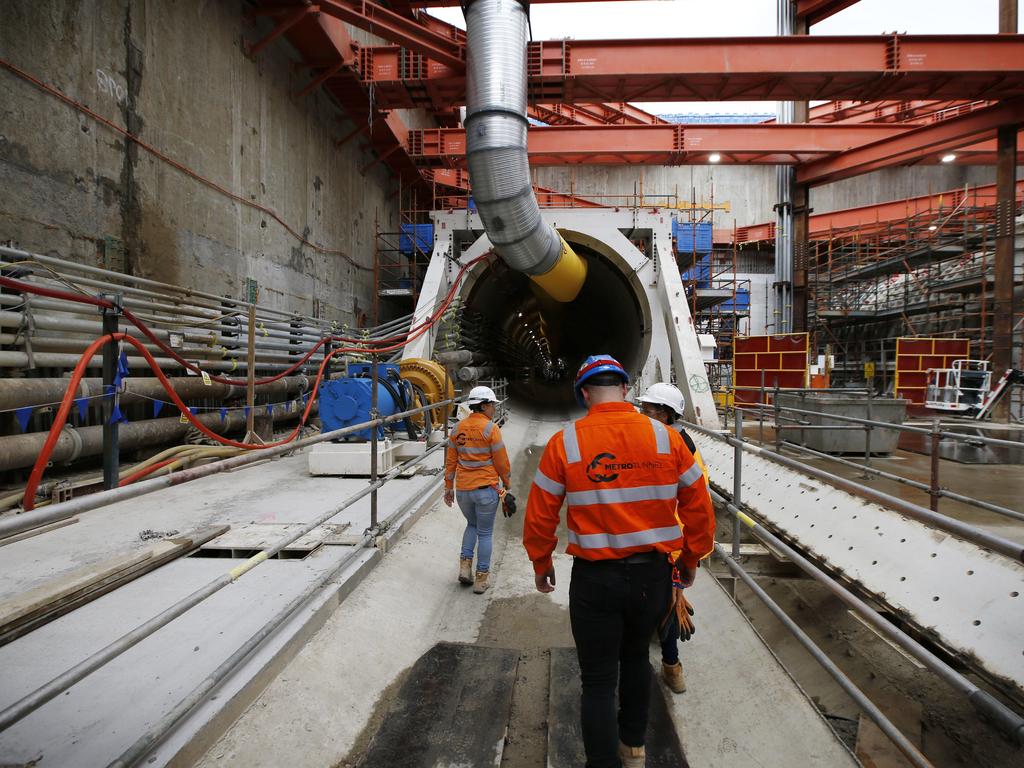Lendlease shares sink on Melbourne Metro Tunnel concerns
Lendlease shares fell as analysts lamented its failure to seal a cleaner exit from its troubled engineering division.

Lendlease shares sank after its inconclusive exit from its engineering division, with Spanish conglomerate Acciona paying $180m in a deal that leaves the construction giant still holding problematic projects.
Investors had hoped for a cleaner exit and Lendlease shares were down by almost 5 per cent to trade at $17.96 at 11am (AEDT), after earlier touching a low of $17.65.
The sell-off was driven by concerns about Lendlease’s ongoing exposure to the troubled Melbourne Metro Tunnel Project, which it is undertaking with John Holland and Bouygues Construction, and its retention of two smaller loss-making road projects which are nearly complete.
Lendlease will finish off work on the Kingsford Smith Drive and NorthConnex roads, which were responsible for prior provisions. Both projects are more than 90 per cent complete.
Macquarie Equities analysts Stuart McLean and Darren Leung said it was “disappointing” Lendlease will also be retaining the troubled Melbourne Metro contract. Lendlease’s share of the contract is worth about $1.8bn contract and it is due for completion in 2025.
Talks with Acciona continue in relation to this project but Lendlease pointed towards cost and scope as issues it is negotiating with the Andrews government in Victoria.
“The equity market is likely to continue to discount the valuation of Lendlease until greater clarification is provided in regards to this project,” they wrote.
The analysts warned that a provision may arise when the project reaches 20 per cent completion in the second half of 2020, given an allowance for cost overruns in Lendlease’s already announced $450m-550m in exit costs from engineering.
“The outcome on engineering was below our expectations given the downside is not capped in light of ongoing Melbourne Metro exposure,” the Macquarie analysts wrote. “Further, we had factored in $300m sale price vs $180m actual and $300m drag from working capital vs $450m actual.”
The analysts are assuming an additional $500m of indemnities on top of the $450m-550m exit costs to account for problem projects.
But they said that with the engineering business unit being resolved and Lendlease holding a $100bn global development pipeline, they would keep an outperform rating on the company.
Citi analysts led by David Lloyd said the Acciona announcement reflects the first step in the process of Lendlease’s exit from the engineering business.
“We believe it’s positive that the management’s assessment of overall exit costs for the engineering and services business is unchanged, potentially reflecting that they include the necessary allowances for Melbourne Metro,” they wrote.
“We remain confident that Lendlease has the potential to see a multi-year rerating as its business model evolves into a global real estate developer and fund manager. That said, the uncertainty surrounding the outcomes of Melbourne Metro could make it more difficult for the stock to re-rate in the near term,” they added.
JPMorgan analysts led by Ben Brayshaw wrote Lendlease would recognise a negative balance sheet adjustment of $450m due to the sale.
Mr Brayshaw wrote it was positive that no indemnities will be provided for existing projects, which reach completion after financial close. However, he said it was not an entirely clean exit for Lendlease, as it will retain the Melbourne Metro exposure.
“We think the sale of engineering is an acceptable result but the purchaser has extracted maximum value which could have largely been anticipated,” he wrote.
Lendlease acquired Valemus, the genesis of its engineering and services unit, for $1bn in 2010.
In the last two years JPMorgan estimated the engineering arm had incurred $850m in post-tax impairments and exit costs, before taking into account a potential loss on sale.
Mr Brayshaw said the synergies between engineering and the broader business turned out to be much more limited than originally thought.






To join the conversation, please log in. Don't have an account? Register
Join the conversation, you are commenting as Logout